An Effective Self-Defense Tactic - Flipping the Script
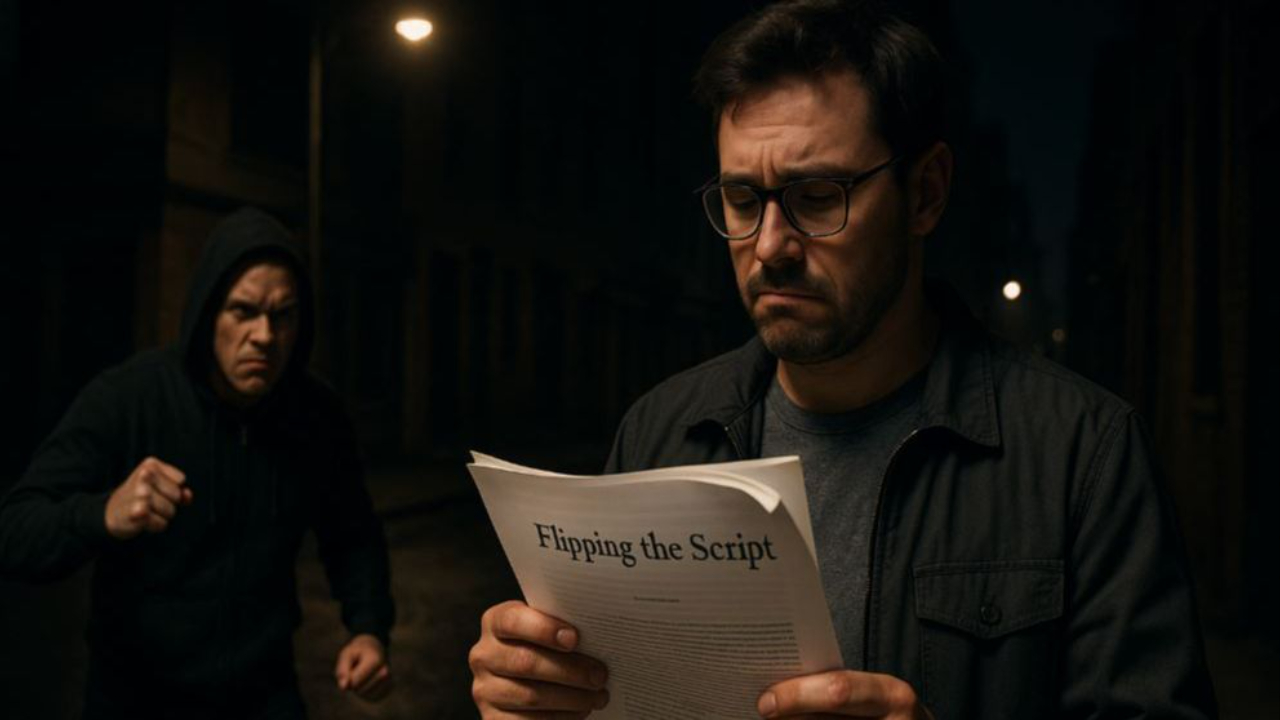
"Hey, what are you looking at?"
Every boy learns to recognize this question. It's one of the first things a bully will say when he chooses you for a target.
It doesn't matter how you answer.
You might say, "I'm not looking at anything."
"What? Are you saying I'm nothing?" the bully will reply.
And then he walks closer. He is ready to fight.
As adults, these types of encounters are not as common, but they do happen. Often, the bully is replaced by someone with more sinister motives -- someone who wants to do us harm.
Dan Djurdjevic is a martial artist from Perth, Australia who has developed the concept of "flipping the script" on someone who is verbally setting up an assault.
You can "flip the script" when you reply to a leading question with something that the potential attacker is not expecting.
For example, he might say, "What are you looking at?"
He is expecting you to be afraid and reply, "Nothing." Then he can continue with his script.
But what if you give him somethi...
10 Quick Ways to Break or Lock an Elbow with Chin-Na Joint Locks
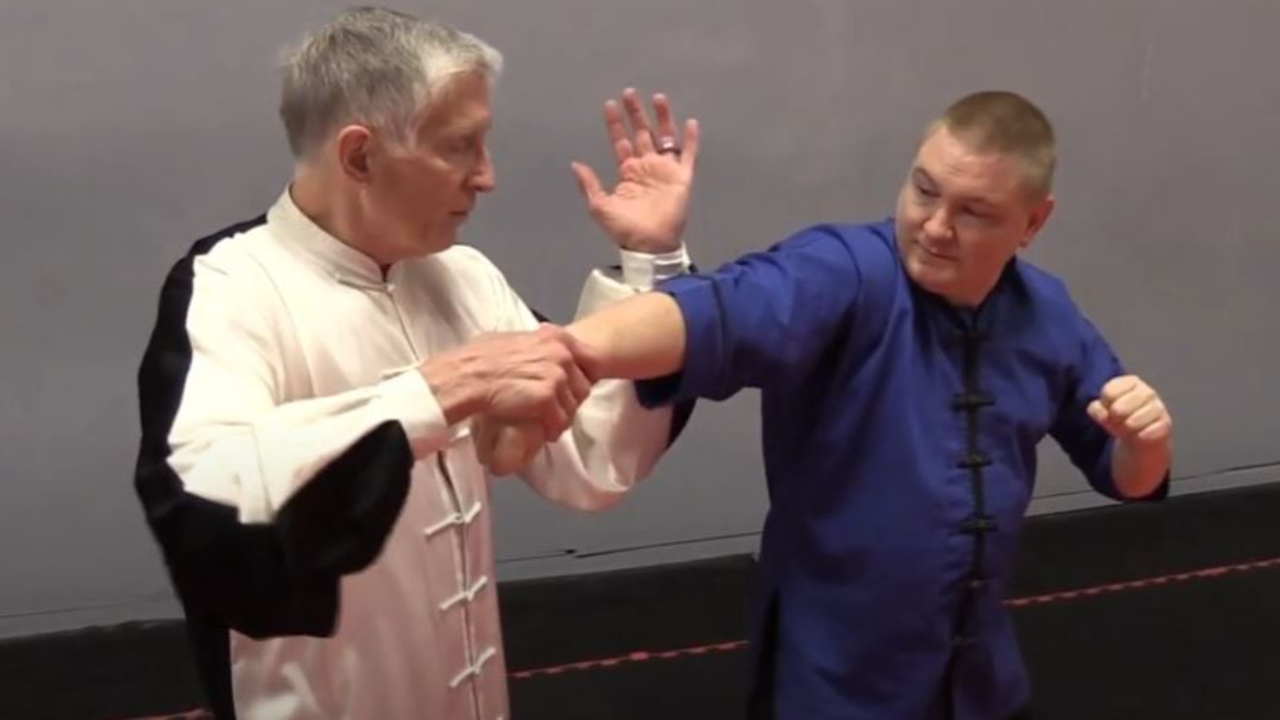
Most traditional martial arts styles give names or numbers to joint-locking techniques. In Chinese chin-na (also spelled qinna), we have names such as "Half Moon," or "Push the Boat Down the Stream." I have always loved these descriptive, poetic names, but sometimes they get in the way.
The best way to learn chin-na is not to memorize names and techniques. The best way is to look at principles -- look at the way joints move -- and then do free-flowing sparring exercises and push hands to practice recognizing opportunities for joint locks when they arise in a fight.
IMPORTANT RULE FOR CHIN-NA:
When someone attacks you, you will NEVER be able to say, "I'm going to get that guy in an Outside Wrist Twist." If that is what you are planning, he will probably knock you out while you are looking for your opportunity.
The best plan is no plan. And that is what practice is for.
You practice with this goal in mind: you want to be able to recognize opportunities for joint locks that arise dur...
43 Years of Flying Sidekicks
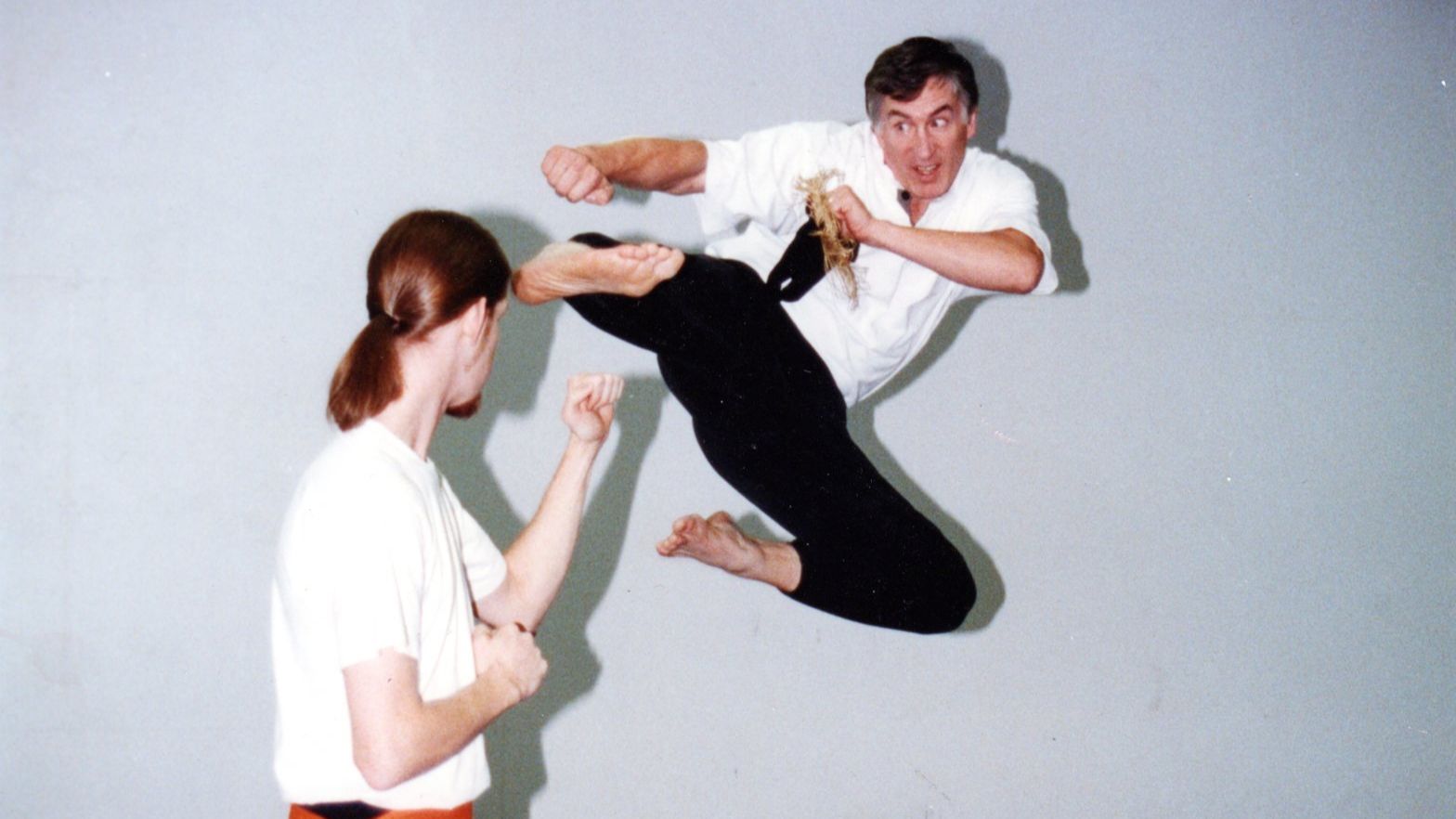
I celebrated my 64th birthday two weeks ago by attempting a 6-foot-high flying sidekick.
It was my first attempt at a flying sidekick in three years.
My first attempt ended with me on my butt, and I was so tickled that I cut this short video including some outtakes, along with photos of different attempts beginning in 1974, when I was 21 years old.
This crap doesn't get any easier as you get older, lose a lung, lose muscle mass, and go through heart failure. But one of the reasons I got into martial arts was to have fun.
Take a look and celebrate with me. Hooray for getting old!!!
The "Glimpse" That Keeps Us Coming Back

A Taiji instructor and a former guest on the Internal Fighting Arts podcast, Kimberly Ivy of Seattle, wrote a post on Facebook a few days ago that brought back some vivid memories for me, and reminded me of one reason I have kept coming back to these arts decade after decade, putting myself through the hard work and practice to get better at these skills.
She wrote that some of her long-time students, some of them off-and-on students, told her that it was the occasional "glimpse" they received when practicing that kept them coming back.
Ahh, yes. The "Glimpse."
I first experienced the "Glimpse" around 1980. I had been involved in martial arts for seven years at that point, and I had been studying Zen Buddhism and Taoist philosophy. One of my favorite books was "Zen Buddhism," by Christmas Humphreys. I loved reading the koans -- little anecdotes or riddles that are supposed to make you realize the inadequacy of logical reasoning and to trigger enlightenment: the "Glimpse."
Here is a...
Silk-Reeling Exercises - Fighting Applications of Chan Ssu Jin
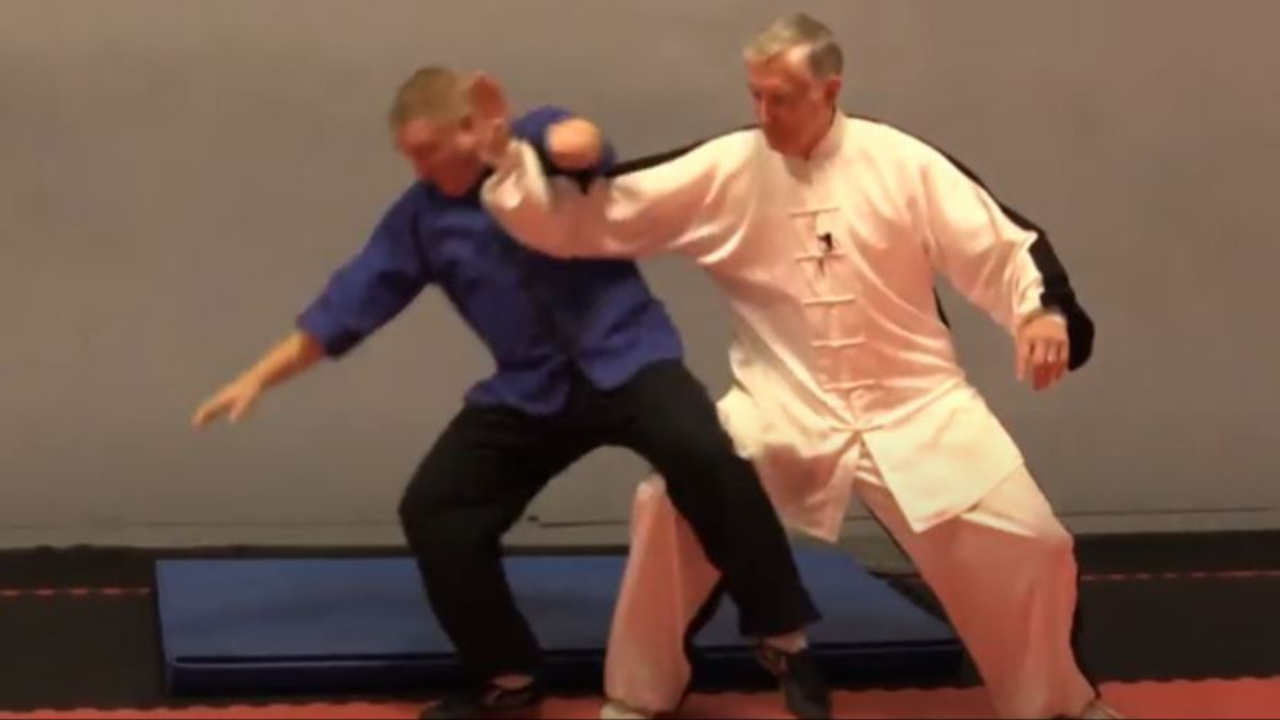
I am finishing up production on a new DVD -- actually, a replacement of my original Silk-Reeling Energy DVD, a 2-disc set I did back in 2008.
The new revised version is all on one disc and it should be ready for market next week.
It includes in-depth instruction on 19 silk-reeling exercises that help you put the key body mechanics of the internal arts into action.
I'll announce next week when the DVD is available on my websites and on Amazon.
In the meantime, here is a quick highlight of some fighting applications for silk-reeling exercise number one. We shot applications for each of the SRE exercises for the website. Every movement in Tai Chi has a fighting application, even silk-reeling exercises, which are really just Tai Chi movements.
A Guided Chaos Workshop - Tai Chi Fighting Insights from the Outside
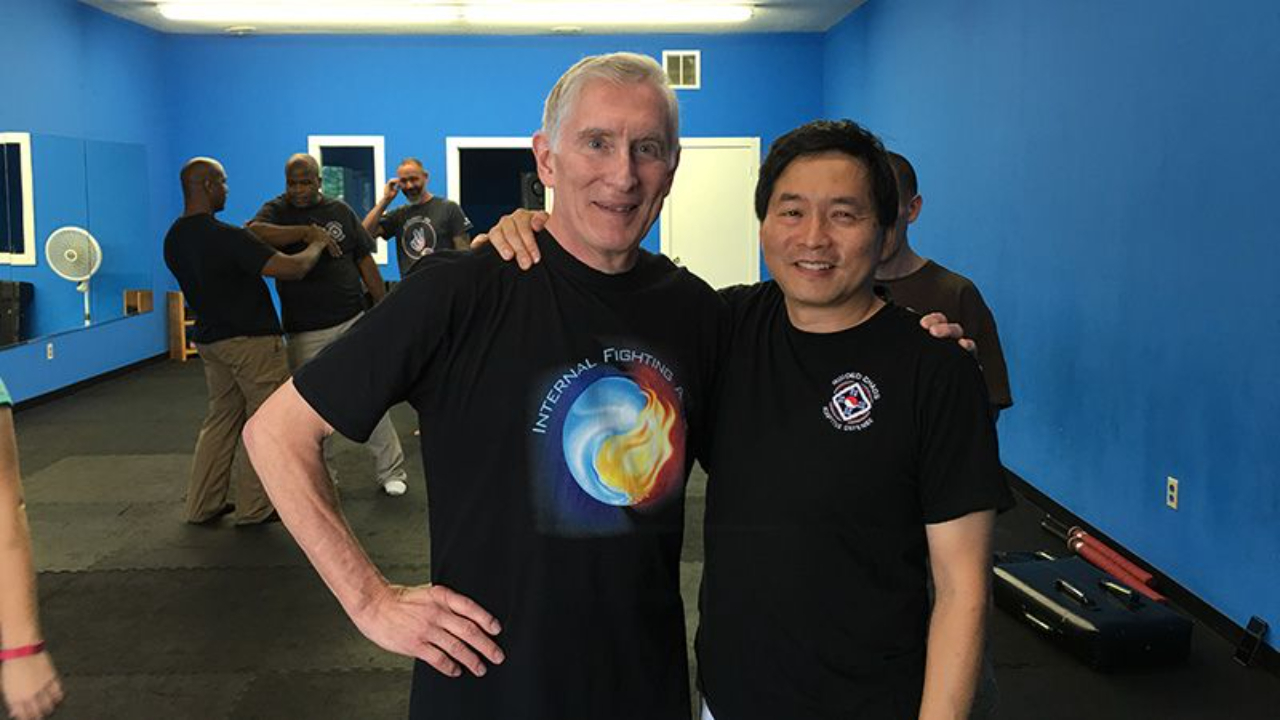
Those of us who practice Tai Chi (Taiji) as a fighting art pursue concepts that represent a holy grail. They are written about in the classics, and spoken of in quotes by long-dead masters including Chen Wangting, who supposedly said:
"I know everyone, but no one knows me."
When I first became interested in the Kung Fu TV show back in the early Seventies, one of the interesting quotes from the show was:
"A Shaolin monk, when reached for, cannot be felt."
When I was 18 and watching that show, I thought that meant something mystical, as if a Shaolin monk vanished in front of you. But the quote resonated with me.
I have done push hands with some Chinese instructors, including Chen Bing and Chen Xiaoxing, who, when I pushed on them, they disappeared and very quickly I found myself off-balance (or on the floor). When I reached for them, they could not be felt.
In other words, I could not find their center, but they could find mine.
For a long time, I've been working to get better at ...
Grandmaster Chen Xiaowang and the Story of Students and Spaghetti
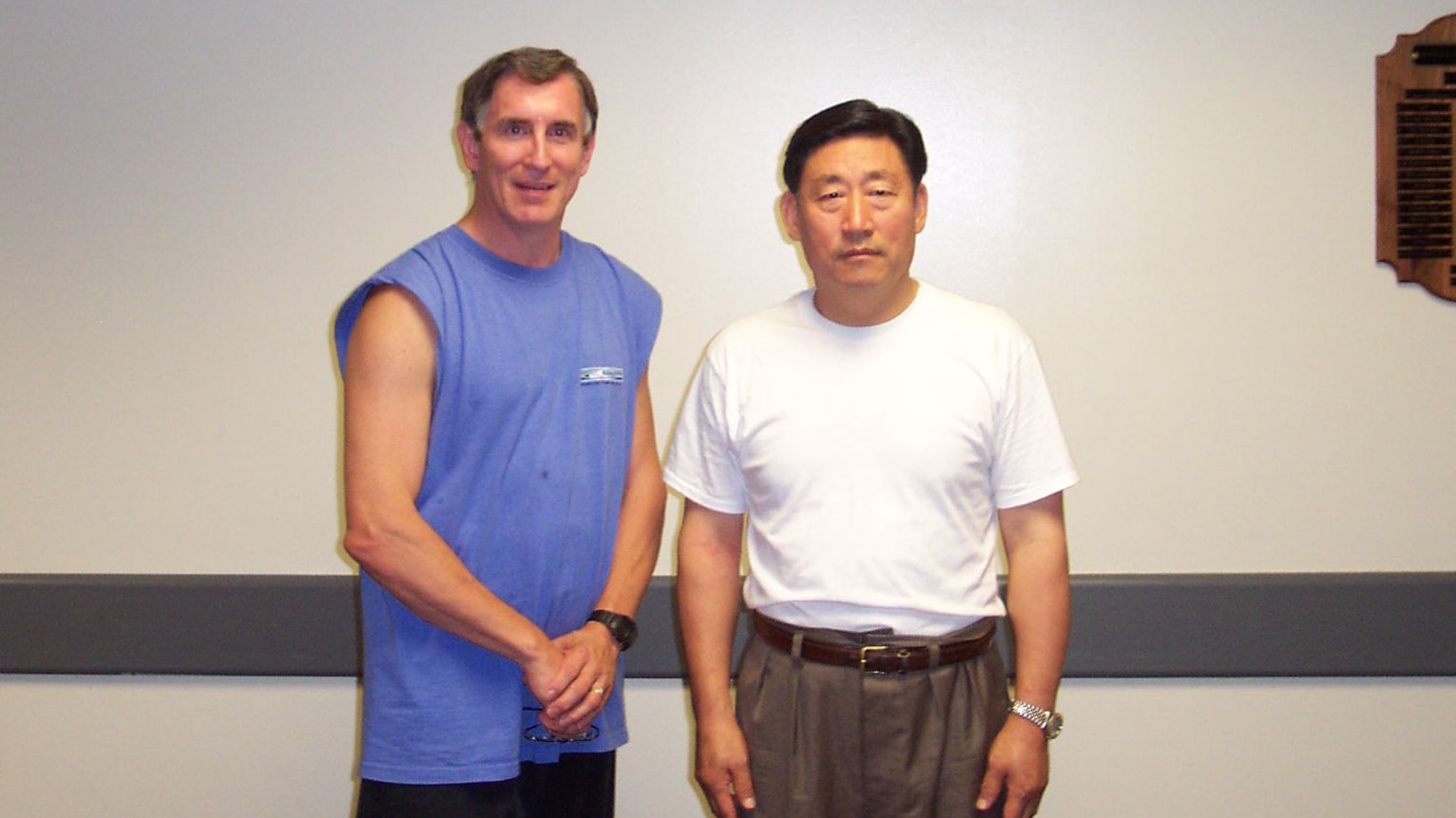
At one of the workshops I attended with Chen Xiaowang, he told the story of a taiji instructor who invited his young, eager students to have dinner with him.
They all sat around the table as spaghetti with meatballs was served.
The master took his fork and tried to spear a juicy meatball that was on his plate. He missed.
The master kept trying to spear the meatball and it kept slipping away from the fork, so he chased it around the plate, stabbing and missing.
After a moment, he looked up at his young students seated around the table. Each student was chasing a meatball around the plate just like the master was doing.
That is how the master does it, so that is how it must be done. The master is showing us the way!
I am paraphrasing this story. In Chen Xiaowang's version, the master may have been using chopsticks - it has been a while, but the gist of the story is the same, and he laughs when he tells it, but as you look around at the students who are listening, you see them smil...
Xingyiquan from Form to Fighting - Pi Chuan Splitting Deflecting Block
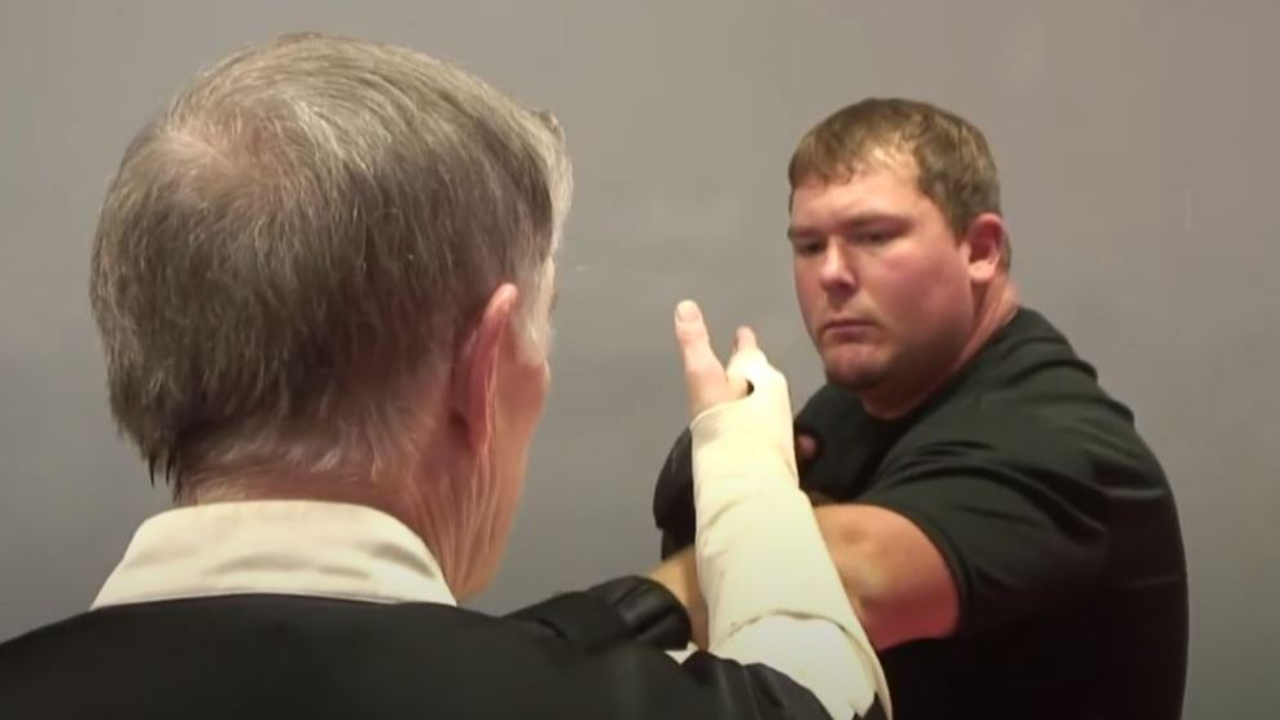
When I teach the internal arts - Xingyiquan, Chen Taiji and Baguazhang - I teach fighting applications with the movements.
It is very important to learn how to move from form to self-defense. A positive learning environment helps, where your partner is trying to help you internalize the meaning and the application of the movement.
My website - www.internalfightingarts.com - has more than 750 video lessons and downloadable pdf documents.
This is a short clip from some of the videos we are currently shooting and putting on the site. It shows a Pi Chuan cutting block and deflects and redirects your partner's energy, setting you up for a counter.
Pulling the Internal Martial Arts Out of the Pre-Scientific Past

Steve said he could emit light from his hands and "lift" me spiritually if I would "receive the light." It is a practice called "Sukyo Mahikari."
"You emit light from your hands?" I asked.
"Yes, would you like to try it?" he replied.
I said sure. I sat down in a chair facing him. He sat across from me.
"Close your eyes," he said. "This will take about 10 minutes."
I closed my eyes and relaxed. Steve, a mild-mannered, soft-spoken man about my age began praying in a language I had never heard. After a moment of prayer, he held up his hands and began shooting light out of them, I suppose. At least that's what he thought he was doing.
I peeked once during the 10-minute session and there was no light coming out of his hands. Maybe it was beyond the visible spectrum. So I cooperated, relaxed, and tried to be receptive to whatever happened. Nothing happened.
At the end of 10 minutes, he prayed again in tongues and then told me to open my eyes.
"Did you feel anything?" he asked with ...
Why Traditional Chinese Medicine is Like Religion
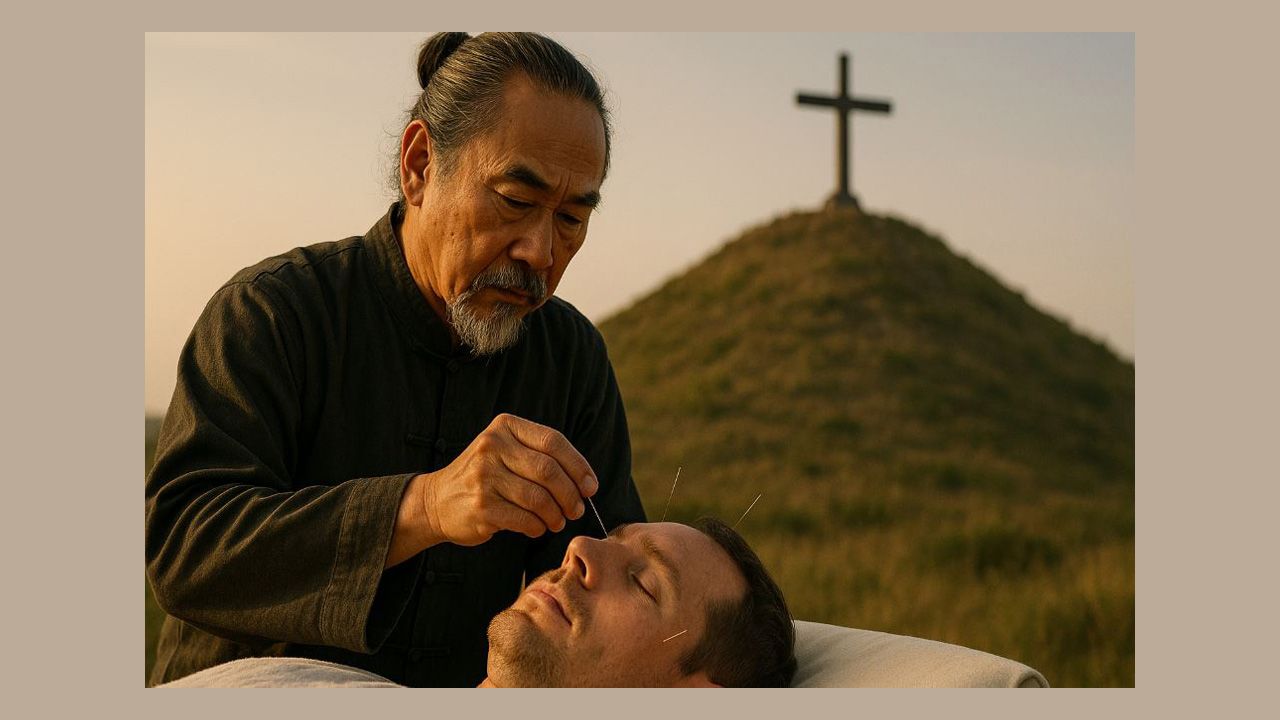
This isn't going to go down well with my friends who are acupuncturists, qigong instructors, and Christians.
I know a lot of very good people in all three groups. Hell, I used to be a Christian, and I have practiced qigong since 1987. I use qigong for stress management and to help maintain my center in a hectic, crazy world. I studied acupuncture for two years, had all the equipment, and even practiced on people. I don't do that anymore.
I am a skeptic.
That means I need evidence before I believe something, and I have not seen evidence that the medical claims made by proponents of alternative medicine and TCM work very often beyond what you would expect from a placebo.
I wasn't always a skeptic. My mom raised me to be a Christian, but I left the faith around age 20, when I discovered Eastern philosophy. I gave the concepts of chi and acupuncture a shot -- a very open-minded shot -- as I studied qigong and acupuncture. I wanted them to be true.
Being a skeptic means that I am not ...
